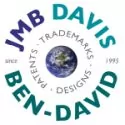A number of important changes have been made recently to the Israel Patent Law, which may be summarized thus:
(Section 1) "Exploitation of a patent" is defined as:
- where the invention is a product - production, use, proposal for sale, sale or import for one of these purposes;
- where the invention is a process - use, and regarding a product which flows directly from the process - production, use, proposal for sale, sale or import for one of these purposes,
excepting the following:
an act not on a commercial scale or not of a commercial character;
an experimental act in connection with an invention which has the objective of improving an invention or developing another invention;
an act done in accordance with Section 54A.
(Section 54A) An experimental act in the framework of submissions to obtain a marketing authorization (either in Israel or in a state allowing such experimental act while a patent is in force) for the product after the patent has lapsed, does not constitute "exploitation of an invention", provided that any product produced by that act is not used for any other purpose, whether while the patent is in force or thereafter. Marketing authorization in this context means approval, permit or any other document required by law for marketing the product.
(Section 64A) Extension of Period of Protection
The following definitions apply:
"medical formulation" - any form of therapeutic drugs that underwent processing, including a formulation for use in veterinary medicine, or of nutritional value and intended to be injected intravenously; "substance" - the active ingredient of a medical formulation or salts, esters, hydrates or crystal forms thereof; "the basic patent' - the patent that protects any substance, or a process for producing a substance, or a use of a substance, or a medical formulation containing a substance (or a process for producing the formulation), or medical equipment requiring authorization in Israel.
This Section requires the Registrar, if satisfied that stated conditions have been met, and that application for an extension order was made in good faith, to extend the term (but not the scope) of the basic patent. The Applicant may be the patentee, an exclusive licensee, or any joint owner.
The stated conditions are that the substance, or process for producing it, or its use, or a medical formulation containing it, or medical equipment, are claimed in the basic patent, which must be in force. Also, as regards a medical formulation, it must be registered (as a first registration permitting use of the substance for medical purposes) in the Register of Medical Formulations under Rule 2 of the Pharmacists Regulations (Medical Formulations) 5746-1986. Finally, there must not have been a previous extension order for the basic patent or the substance.
The intention to grant an extension order must be published in the Official Journal, and may be opposed on any ground on the basis of which the Registrar has the power not to grant an extension. A granted extension order may be canceled on the same grounds. Also, an extension order lapses if registration of the medical formulation is canceled. If the basic patent is canceled, or is amended so that any one or all of the relevant claimed items are no longer protected, the extension order lapses simultaneously. An extension order gives the patentee the right to prevent any person marketing, or producing for marketing, without his permission, the medical equipment, or the medical formulation containing the substance, provided that the substance, process for its production, or its use, or the medical equipment, are claimed in the basic patent. Apart from obligatory differences, Chapter 11 and particularly Section 183 (relief for infringement) are applicable. The term of extension is the same as that granted in a Convention country which allows acts, during the patent term, for the purpose of obtaining marketing authorization. In case of a license being applied for only in Israel, the term is equivalent to the time between application and grant of the extension order, provided that application on the applicant's behalf was submitted and handled in good faith and with dispatch. Also, the aggregated patent term is limited to 25 years from the application date, and it may not extend beyond 14 years from when the first marketing authorization was received in a Convention country. The extension order lapses simultaneously with the first lapse of a corresponding extension in a Convention country.
The Bottom Line
1. Acts undertaken by a third party during the life of a patent, in order to prepare submissions for approval to market a pharmaceutical product etc., after the patent expires, e.g. as required by the USFDA, are not deemed to be infringement of the patent.
2. The term of pharmaceutical etc. patents may be extended. Clients or Associates who are interested in so doing should forward details of the relevant patents in Israel and correspondingly in a Convention country, of marketing approval in that country (as e.g. by the USFDA) and of registration in the Register of Medical Formulations, as well as a Power of Attorney.
The above information is provided as a service only, and professional advice, over and above this information, should always be sought when considering specific applications.

